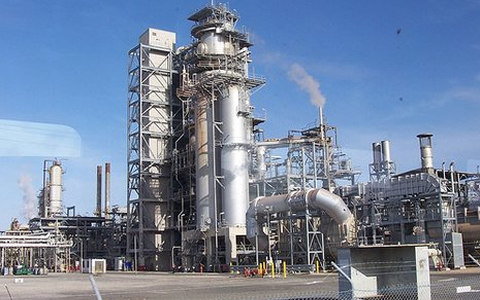Government has appointed an interim management team to steer the affairs of the Tema Oil Refinery (TOR), following the dismissal of the refinery’s Managing Director, Francis Boateng and his deputy, Ato Morrison.
The three-member interim committee includes Nobert Cormla-Djamposu Anku as chairman and William Ntim Boadu and Okyere Baffuor Sarpong.
TOR, the only oil refinery in the country, has been saddled with many problems for some time now and the challenges appear unending. As acknowledged by the Minister of Energy, Dr. Mathew Opoku Prempeh, after swearing in the interim management team, TOR and its crippling debts, infrastructural issues and equipment have been well noted.
Among some of the challenges that needs to be resolved in order to turn the state-owned company around are worker’s agitation over non-payment of salaries, water supply to the refinery being disconnected by Ghana Water Company Limited, unavailability of crude oil to be refined, to mention a few, says Kwadwo N. Poku, Executive Director of Institute for Energy Policies and Research.
More importantly, if this vital state asset is to be revived, urgent steps need to be taken to increase its crude oil distillation unit from 23,000 barrels per stream day (bpsd) to the stated 45,000 bpsd, solve the RFCC problem, install hydrotreating catalysts and technologies for all crude oil fractions, construct a gas pipeline (less than 1KM) to power the refinery and put measures and security in place to stop the theft of products.
“We have stated in the past that the refinery needs special attention by government to determine the long-term viability of the company,” he added.
For the Executive Director of Institute for Energy Security, Nana Amoasi VII, for a refinery to be profitable, it has to be efficient in terms of its operation. He also believes increasing the refining capacity, increasing the utilization capacity, and reviewing the plant configuration, holds key to TOR’s survival.
“Government’s best bet is foregoing part of its stake in the business to private hands. This is to reduce its level of interference and most importantly to provide the needed cash-flow for the projects and operations of TOR,” Nana Amoasi VII added.
Given that the business of oil refining is crucial to not just national development but also security, it is hoped that this will be the last interim management team in the long torrid history of the refinery.
A well ran TOR could save the economy billions in foreign exchange, strengthen the cedi, create jobs and ultimately give impetus to the drive for a value added economy.
In this light, the temporary team in place must work to right the many wrongs that have bedevilled TOR in recent years, while a competent new management must be appointed in the immediate future to salvage this vital national, which was asset established in 1963










